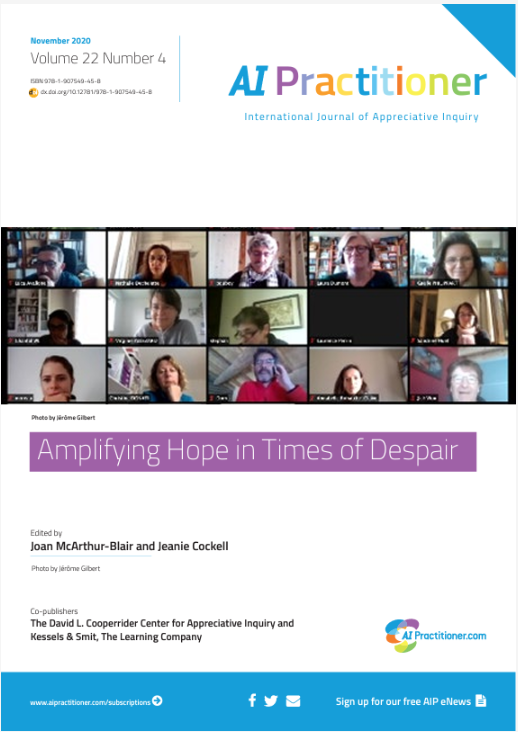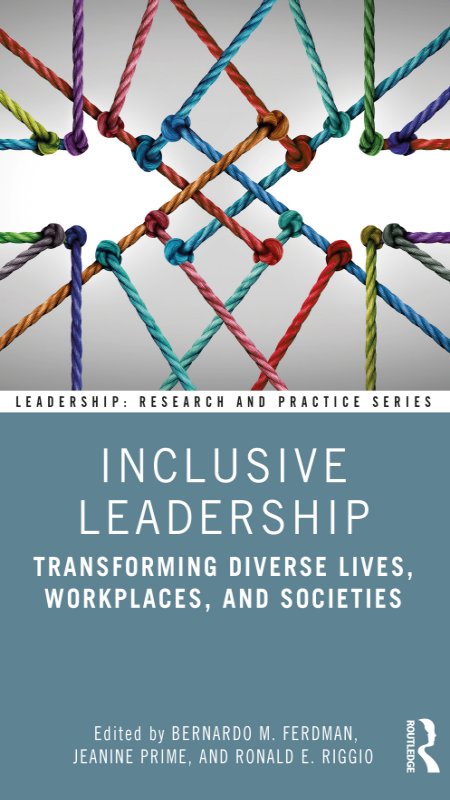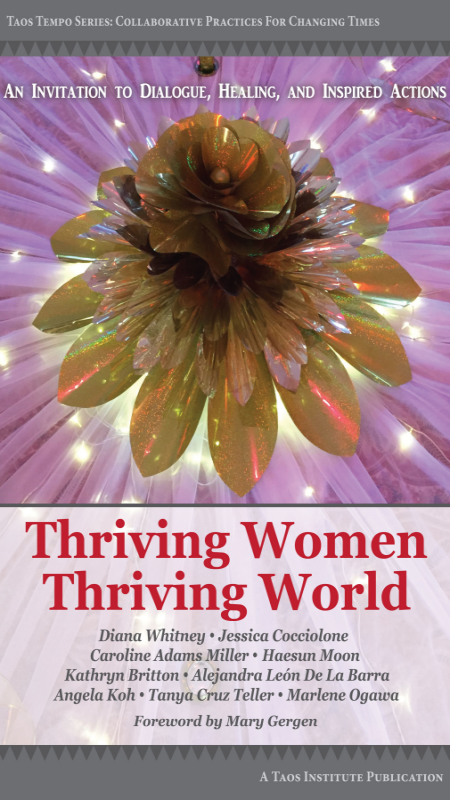Thriving Women, Thriving World: An Invitation To Dialogue, Healing And Inspired Actions
This book is a celebration of women. It is an invitation to journey from #MeToo to thriving women via appreciative inquiry, dialogue, and story telling. It addresses topics, through an appreciative lens, that may be difficult to talk about, yet must be talked about to heal social wounds and create conditions for women to thrive worldwide. The book includes a foreword by Taos Institute, co-founder, Mary Gergen, PhD, a chapter describing ways to use the question in the book, and nine chapters containing 94 Appreciative Inquiry questions, poems, stories and specific practices to make a positive difference in the lives of women and girl identified people at home, at school and at work. The final chapter putsforth five Arts of Thriving that emerged in the writing of the book: Curating Life-Affirming Stories, Creating Meaningful Disruptions, Caretaking Generative Relationships, Celebrating Strengths and Successes, and Cultivating Conditions for Thriving. Thriving Women Thriving World is written to be user friendly for female identified, male identified, and gender expansive identified people in separate conversations and together.It is intended to foster relationship enhancing conversations and collaborative actions among people in a wide range of settings around the world.It is a valuable resource for coaches, consultants, facilitators, educators, leaders, and parents – for anyone seeking resources for compassionate conversations about gender issues. The nine authors that collaborated to write this book range in age from 35 to 70. They live in South Africa, Canada, Mexico, and the United States and work on all 7 continents. They bring together expertise in consulting, executive coaching, organizational development, education, community organizing, Appreciative Inquiry, and positive psychology.
About the Authors
Diana Whitney, Caroline Adams Miller, Tanya Cruz Teller, Marlene Ogawa, Jessica Cocciolone, Haesun Moon, Kathryn Britton, Angela Koh & Alejandra Leon de la Barra are a team of internationally recognized leaders, consultants, coaches, and speakers. Their collective expertise in Appreciative Inquiry, positive psychology and diversity, equity and inclusion frame the pages of their book, and illuminate generative possibilities for conversations and stories to create a world that works for everyone.
“What an amazing and inspiring resource! Talking about what bothers us is easy. We do it all the time. Rarely do we stop and ask ourselves what would bring joy and connection. This book is jam-packed with creative resources that invite us to reflect on what we value, what we want more of, and how we can engage with others to create these thriving spaces.”
– Sheila McNamee, Vice President, Taos Institute, Professor of Communication, University of New Hampshire
This group conversation with the authors was recorded as part of the Taos Institute’s Dialogue with the Authors free webinar series. During this discussion, the authors of Thriving Women, Thriving World share why and how they collaborated to address global issues of gender abuse and inequality. Each author shares how they are in the book, and how the book lives in them! They describe their collective determination to apply Appreciative Inquiry and social constructionist practices to create a set of tools to flip conversations and ultimately relational realities away from patriarchy toward equality and thriving for all. After a brief overview of Chapter 13: Five Arts of Thriving, they invite the group members to share how they find themselves in the book. And finally they facilitate a discussion of how the book has been used and might be used in book groups, families, communities and organizations.
Resilience, Allyship and Self-efficacy
Authors of An Appreciative International Women’s Day Interview with Lindsey Godwin by Tanya Cruz Teller
ABSTRACT
This article explores what it takes to rise and thrive in academia leadership given the gender inequality. Tanya Cruz Teller and Dr. Lindsey Godwin discuss Lindsey’s journey, the role of family, and the strength of mentors and allyships in this interview conducted on International Women’s Day 2024. To watch a video outtake post interview, click here.
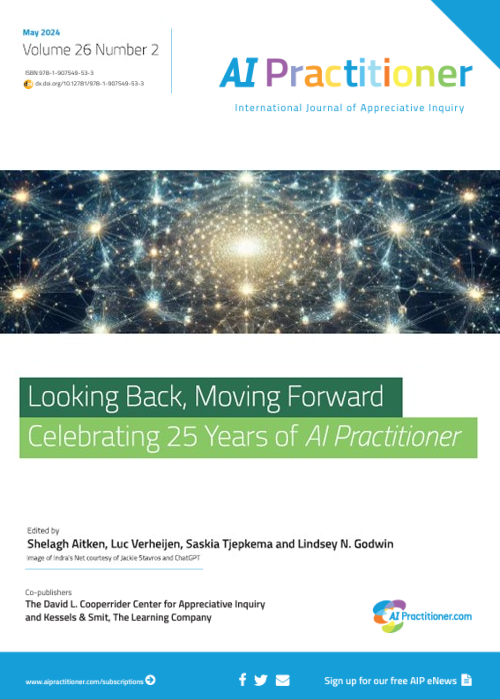
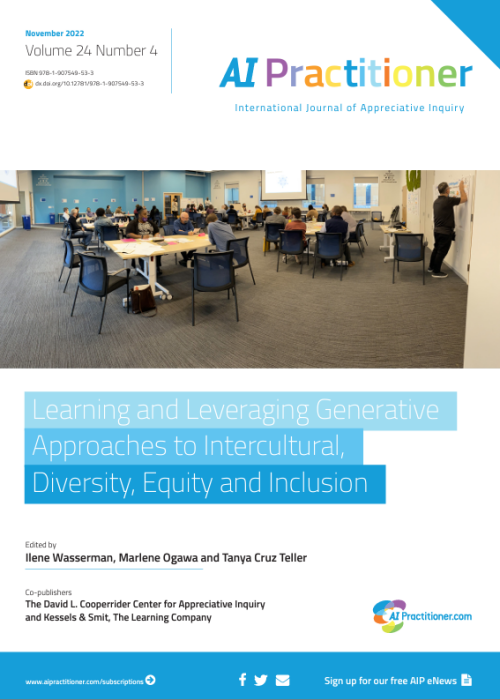
ABSTRACT
The commitment to meaningfully and transfomatively address intercultural, diversity, equity and inclusion issues in organizations has grown exponentially. In this issue we invited a diverse group of people to tell the stories of what they were discovering and learning from this work. The articles also reflect the diversity of journeys and hard work within organizations.
ABSTRACT
In today’s environment it is easier than ever to host a virtual event, and gather stakeholders and sponsors to attend webinars or engage in recorded sessions. At the same time, there is also a great need for human connection, wholeness, and the ability to bring diverse and broad groups of people together for positive change. This environment is the perfect accelerator for Appreciative Inquiry practitioners to intentionally evolve using new technologies and virtual tools.
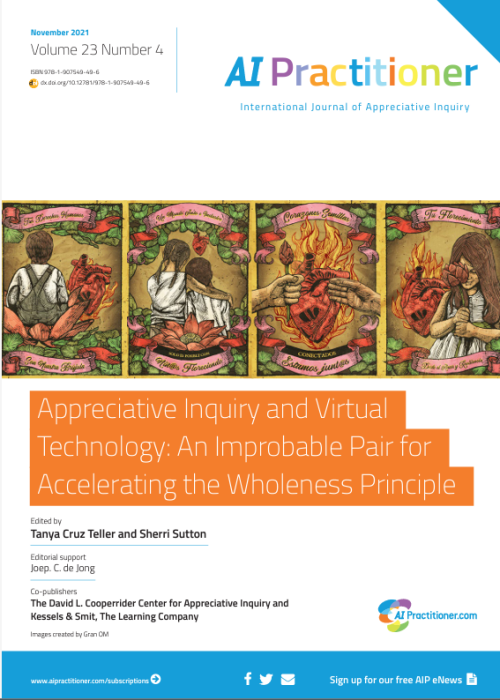
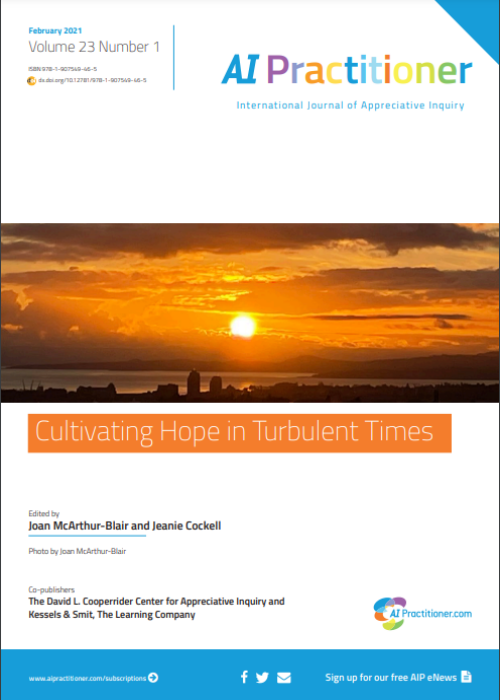
ABSTRACT
This article highlights the positive impact of sharing appreciative stories of resilience in a women’s entrepreneurship development programme pivoting online due to the Covid‑19 pandemic. The simple and spacious virtual design, coupled with technology support, culminated in a powerful harvesting of their collective resilience wisdom.
ABSTRACT
This article highlights the process and key insights of a social justice organisation’s appreciative inquiry into their resilience. Diversity, equity and inclusion principles are central to the Spaciousness theory of change and the Appreciative Leadership Lotus Model used by facilitators to create the space for staff and board to remember their collective resilience. The article reflects on the appreciative resilience of a diverse group of people piloting new technology and translation functionalities.
